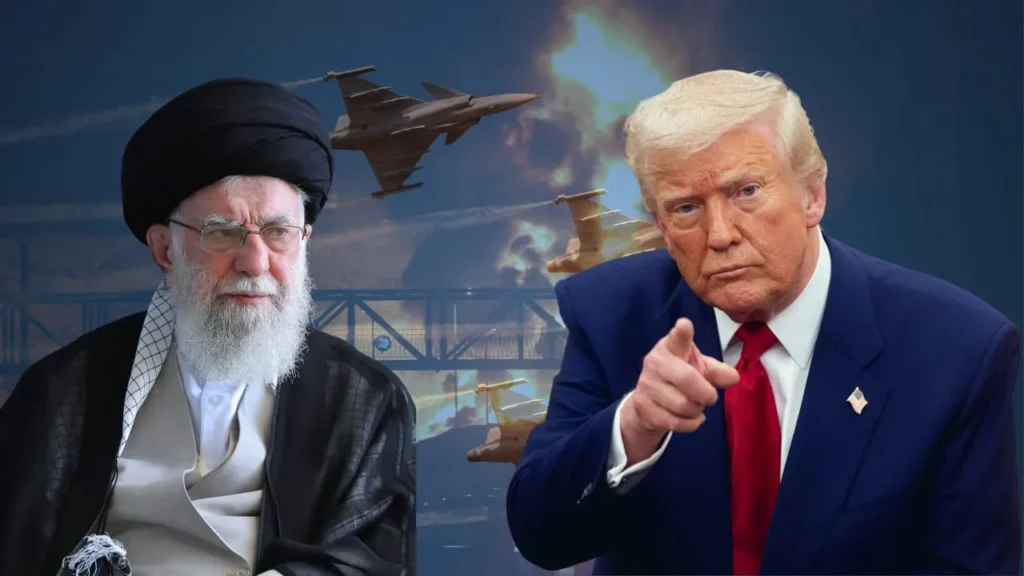
In This Article
As tensions between Israel and Iran flared once again with a series of missile exchanges and retaliatory strikes, many are asking: why is the United States getting involved? While it’s easy to view this as yet another chapter in a long and complicated Middle East saga, the U.S. response is rooted in a mix of defense commitments, regional stability goals, and the safety of its own forces. In moments like these, Washington often walks a tightrope—trying to support its allies, deter adversaries, and prevent a wider war that could spiral out of control.
Here are five key reasons for the U.S. Military Action in the Israel-Iran Escalation
1. Strategic Commitment to Israel’s Security
The United States has long viewed Israel as a central pillar of its Middle East strategy, maintaining deep-rooted ties through intelligence sharing, military cooperation, and defense pacts. When tensions rise—especially involving Iranian forces or proxy groups—Washington often responds with diplomatic backing or military support to uphold regional stability and safeguard Israeli sovereignty.
Recent Context: In April 2024, following an Iranian retaliation for an Israeli strike on its consulate in Syria, the U.S. assisted in intercepting Iranian missile and drone attacks on Israel, underscoring its ongoing commitment to Israeli defense.
2. Curbing Iran’s Regional Influence and Proxy Forces
Iran exerts power across the Middle East through a vast network of allied groups, often referred to as the “Axis of Resistance,” which includes organizations like Hezbollah, Hamas, and Shiite militias in Iraq and Syria. The U.S. considers this influence a serious threat to regional security and to its own military assets and partners on the ground.
Military Response: American forces have conducted targeted airstrikes against Iran-backed militias in Iraq and Syria, particularly after those groups launched attacks on U.S. personnel. These strikes are typically framed as defensive measures.
3. Safeguarding American Troops and Diplomatic Missions
With a substantial U.S. military presence in the Middle East—including in Iraq, Syria, and across the Gulf—the safety of American service members and diplomatic personnel is a top priority. Iranian proxies have repeatedly targeted U.S. bases, prompting swift and calculated responses.
Example: In early 2024, a drone strike killed three U.S. service members in Jordan. In response, the U.S. launched coordinated strikes on Iranian-aligned militia infrastructure in neighboring regions.
4. Preventing a Wider Regional War
The risk of a broader conflict engulfing the Middle East remains high when Israel and Iran engage directly. The U.S. plays a stabilizing role, aiming to prevent escalation into a full-scale regional war that could involve multiple countries and jeopardize global energy markets and geopolitical stability.
Deterrent Measures: By deploying aircraft carriers, missile defense systems, and advanced intelligence operations, the U.S. seeks to de-escalate tensions while maintaining a credible deterrent posture.
5. Domestic Strategy and Global Credibility
U.S. involvement also reflects broader political calculations—both at home and abroad. In an election year and amid delicate international alliances, showing resolve against Iranian aggression helps the U.S. maintain its credibility as a global power and reassure allies like NATO, Japan, and Gulf nations.
Geopolitical Signal: A strong U.S. response serves not only to counter Iranian threats but also to send a message to regional players like Saudi Arabia and the UAE, reinforcing that Washington remains a committed and capable actor in the region.
Israel-Iran Conflict : Global Response
The escalating tensions between Israel and Iran have drawn sharp international attention, transforming a long-simmering regional rivalry into a global diplomatic challenge, as detailed by BBC News, which tracks the unfolding developments and their wider implications.
NATO as a collective has not taken direct military action, but individual member countries have issued statements aligned with Israel’s right to defend itself, according to recent coverage by Reuters, highlighting the alliance’s cautious approach amid growing humanitarian concerns.



